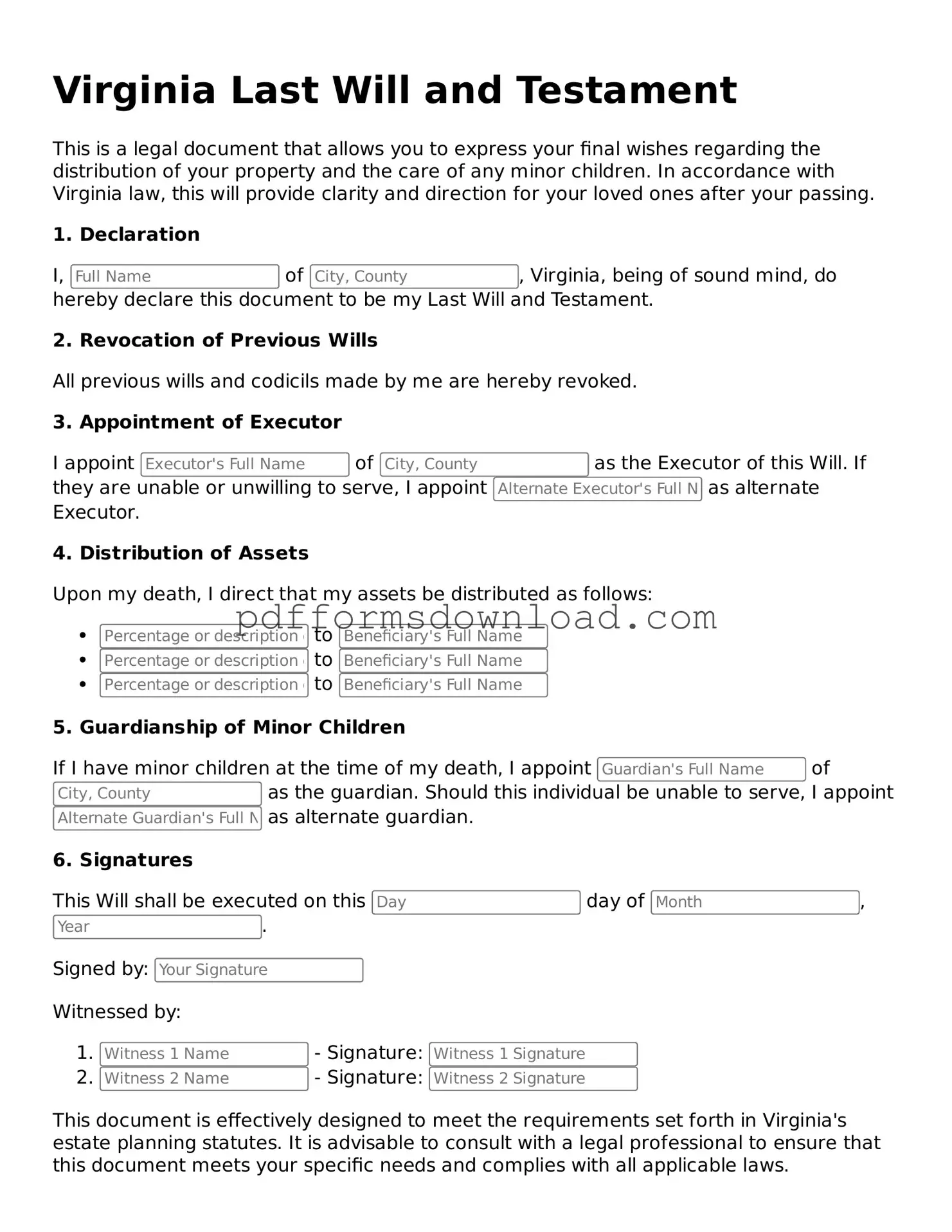What is a Last Will and Testament in Virginia?
A Last Will and Testament is a legal document that outlines how a person's assets and affairs should be handled after their death. In Virginia, this document allows individuals to specify their wishes regarding the distribution of property, appointment of guardians for minor children, and selection of an executor to manage the estate. It serves as a crucial tool for ensuring that one's desires are honored and can help avoid disputes among heirs.
Do I need a lawyer to create a Last Will and Testament in Virginia?
While it is not legally required to hire a lawyer to draft a Last Will and Testament in Virginia, it is highly advisable. Legal professionals can provide guidance on state-specific requirements and ensure that the document is valid and enforceable. A well-drafted will can prevent potential legal challenges and ensure that your wishes are clearly articulated. If your estate is complex or you have specific concerns, consulting a lawyer is particularly beneficial.
What are the requirements for a valid will in Virginia?
To be valid in Virginia, a Last Will and Testament must meet several criteria. First, the testator (the person making the will) must be at least 18 years old and of sound mind. The will must be in writing, either typed or handwritten. Additionally, it must be signed by the testator or by someone else at their direction and in their presence. Finally, the will should be witnessed by at least two individuals who are not beneficiaries. These witnesses must also sign the will, affirming they observed the testator's signature.
Can I change my will after it has been created?
Yes, you can change your Last Will and Testament at any time while you are alive and mentally competent. This process is typically done through a document called a codicil, which amends the original will. Alternatively, you may choose to create an entirely new will, which should explicitly revoke any previous wills to avoid confusion. It is important to follow the same legal requirements for signing and witnessing when making changes to ensure the validity of the document.
What happens if I die without a will in Virginia?
If you die without a will in Virginia, your estate will be distributed according to the state's intestacy laws. This means that your assets will be allocated based on a predetermined hierarchy of heirs, which may not align with your personal wishes. Typically, the estate will first go to your spouse and children, but if none exist, it may pass to parents, siblings, or more distant relatives. Dying without a will can lead to complications and disputes among family members, making it crucial to have a will in place.

